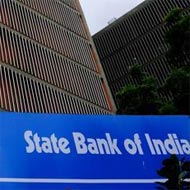Buybacks, open offers, delisting very often in the case of many global MNC, what does that constitute and how does an investor take a studied call on whether or not they should tender or exit as the case maybe or actually stay invested? In an interview with CNBC-TV18's Mitali Mukherjee, Yogesh Radke, head-quantitative research, Edelweiss Securities and SP Tulsian, sptulsian.com, answer those questions.
Below is the transcript of the interview. Also watch the accompanying videos.
Q: A buyback by a company. What does it constitute and what is the intent behind doing that?
Tulsian: Buyback by the company is generally made with three objectives; first, to increase the shareholder value, two, to increase the promoter shareholding and third, to make use of the surplus cash lying with the company. This is made by the company with a view to ultimately extinguish the shares, which the company has purchased, resulting into the reduction in the share capital. So, if the paid up capital of the company gets reduced, obviously the earning per share (EPS), book value and the other return on share parameters get improved. Often, this method is largely used by the company more as a gimmick to mop-up the share prices.
Q: A lot of time it's seen and called as a confidence building mechanism. How exactly does that happen for someone who is holding share in that particular company?
Tulsian: Generally, this window remains open for about one year. One needs to carefully watch whether this results into a fruitful or a positive or a constructive exercise or not. There have been many instances where the window has remained opened for one year, the share was ruling below the price at which company intent to buy in spite of not a single share has been bought.
Obviously, you cannot paint all with the same brush. But, if a company is sincere, the promoters are sincere and if it results into the positive move on those lines, definitely that results into the accretion in the value of the shareholders.
Q: Let's take a couple of examples over here and try and understand how you should gauge whether or not you should be participating in that buyback. Reliance Infra is a largecap company which is a case in point, there is Piramal as well. How do you go about gauging the value of the business, the future value of the business and whether this is a good price to be giving back at?
Radke: You have to bifurcate buyback into two types of buybacks; one, the buyback which the company does by buying the shares from the market and second, is a tender offer. Recently, Piramal announced a buyback which was a tender offer, where shareholders can tender their shares and on a proportionate basis they get accepted. So that is something which an investor can play to get the benefit of a buyback.
In the other one, the company buys from the market. So, in this, the shareholder does not know at what time, at what price the company is going to buy because this is something which has been mentioned before that it is one year process, two year process and across the prices the company buys it. So, the benefit for a shareholder who wants to participate in a buyback is only when the company announces a tender offer, buyback via tender offer.
Historically, we have seen few instances where the buyback is via tender offer. Normally, all the buybacks are done via market which does not directly benefit the investor or trader, but company's equity base, performance base parameters get improved. So, whenever there is a buyback via tender offer that is something where traders can make money or trade on those opportunities.
Q: Walk us through a couple of key things to do then. Over the next month or so for buybacks that are currently open for companies, just lineout a few of them and how you would go about approaching the process?
Radke: As I mentioned that if the buyback is via tender offer then we can play for something again. But currently there is no buyback which is a tender offer. All the buybacks are via market. That means you cannot tender your shares and get the price at which the company is buying. The company will buy through the market. So, you cannot take the benefit of a normal buyback. You need a tender offer, which I just explained, Piramal Healthcare where the buyback was at Rs 600, when the share price was trading at Rs 450. At that time, you can buy the shares and tender into the buyback. So, you get a benefit of that. All the buybacks which are going on, running in the market don't provide you an opportunity to make money or trade in the market. These are only for the performance improvement of the companies.
Related News
ABB: Outcome of board meeting ABB India April-June net profit fall 22% on weak order flowSet email alert for






No comments:
Post a Comment